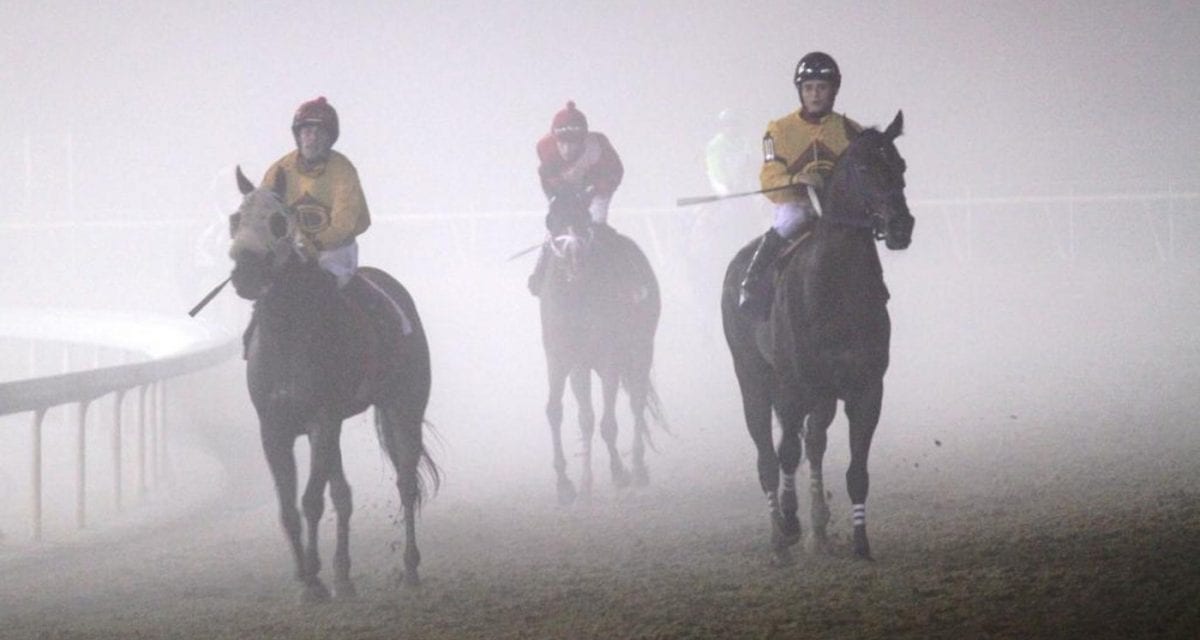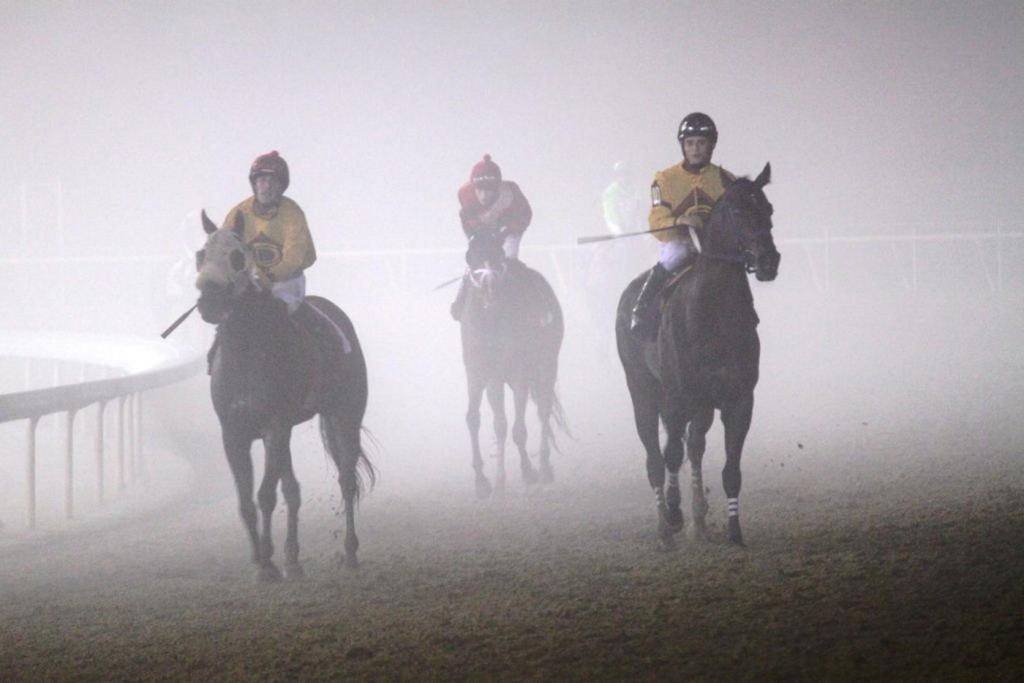by Nick Hahn
A year ago, a number of winter storms postponed several key Virginia Racing Commission meetings, squelching any early momentum in resolving an impasse over the summer meet at Colonial Downs. What started as strategic maneuvering over schedule evolved into wider and broader debates about the foundational structure of Virginia racing economics.
Now, after perhaps the coldest day in two decades, a stalemate between Colonial Downs and Virginia’s horsemen may finally be ending. Last Thursday morning, the state Senate passed, by a 31-7 count, legislation that may finally untie the Gordian knot. The legislation, House Bill 1826, had previously eased through the House on an 81-18 vote and, sources said, had widespread support from the racing industry.
After not racing in 2015, both Colonial Downs and the Virginia horsemen had independent bills entered on their behalf in Virginia’s General Assembly. From the outset, though, it appeared that Virginia’s General Assembly wasn’t interested in moving forward on any legislation without a consensus among the racing entities.
“A compromise made it easier to get the legislation through,” remarked Frank Petramalo, Executive Director of the Virginia Horsemen’s Benevolent and Protective Association (VHBPA), which represents the state’s horsemen.
Indeed, it did.
For Colonial Downs, the legislation will turn back on the spigot of revenue from simulcast wagering.
And it may free the state’s horsemen up to pursue racing at venues other than Colonial Downs, or to craft an agreement to use Colonial.
It’s that latter provision that particularly interests horsemen.
“It’s a significant change in the landscape by allowing an independent group to pursue racing at Colonial Downs and elsewhere in the state,” noted Petramalo.
Now in addition to steeplechase racing, charitable organizations are allowed to flat and harness with wagering up to 14 days without the requirement of a local referendum.
The legislation authorizes an “industry stakeholder organization” which will include representation from the majority horsemen’s group, a breeders’ organization, and a licensed track operator. This new organization’s purpose will be “promoting, sustaining, and advancing horse racing within the Commonwealth,” and it will be funded by a cut of the fees paid by most advance deposit wagering companies, who will continue to be assessed an 11.5 percent fee on wagers.
[su_box title=”HOW ADW WAGERS ARE SPLIT UP” style=”glass”]1) 1.5 percent license fee paid to Va. Racing Commission2) 1 percent to Va. Breeders Fund
3) 4 percent to nonprofit stakeholder organization
4) 5 percent to horsemen for purses
5) If the ADW is a significant infrastructure limited licensee, the 9 percent allocated in #3 and #4 are retained by the licensee.[/su_box]
Under the legislation, “limited licensees” can conduct up to 14 days of live racing per year. That might enable the state’s horsemen to run 14 days, under the auspices of the Virginia Equine Alliance — a collaboration of the Virginia Gold Cup, VHBPA, Virginia Thoroughbred Association, and Virginia Harness Horse Association — at the Gold Cup’s Great Meadow facility.
For Colonial, the bill accomplishes a couple of goals. For one thing, while its EZ Horseplay advance deposit wagering system will pay, as do all ADWs, 11.5 percent off the top to the state, how that money gets split up is different because Colonial is a so-called “significant infrastructure limited licensee.” The nine percent that goes to the nonprofit stakeholder organization (four percent) and to purses (five percent) instead are retained by the licensee — in this case, Colonial Downs.
At the same time, the legislation includes a provision that in future will allow simulcasting to continue even if the track and horsemen don’t have a contract. Under the bill, the Commission “may permit [simulcast] wagering to proceed,” with the moneys to which the wagering facility and the horsemen are entitled placed in escrow until the contract is signed.
From both sides of the ADW equation, the Virginia Racing Commission gets a clip up to 1.5% on their percentage, previously set at 0.5%. The bill also clarifies that the it is the Commission that recognizes the “majority horsemen’s group.” As last year’s fight devolved, Colonial Downs had sought recognition of a newly formed horse group during the 2014 stalemate.
While the two sides are starting back up, they won’t be much closer at the table. Colonial is ensured at least a portion of the pie to hold some live racing at Colonial Downs as Virginia’s “significant infrastructure limited licensee.”
At this mark, it’s not certain whether an agreement will be reached between the VHBPA and Colonial Downs for additional purse money to be used to add racing days above what Colonial generates. Colonial and the horsemen appear to be headed towards more discussion about what a 2015 meet could look like after the bill is signed.
Once signed, the legislation doesn’t go into effect until July 1st, so many of the changes that return pari-mutuel wagering to normalcy may not happen right away. Since 2001, Colonial Downs has raced in the summer but fall racing has been discussed.
Colonial’s owner Jeff Jacobs now has a path to hold his festival style of racing and a new CEO to represent him at the table. At the beginning of the year, Stan Guidroz replaced Ian Stewart as Colonial’s lead.
Each side is now provided an opportunity to seek its own vision through its own independent means. Maybe the passage of a bill that makes Colonial and horsemen further apart could be in the best interest of Virginia racing, after all. After a tough 2014 discourse, the two sides could work together as little — or as much == as they want.
Sitting on the Governor’s desk is a bill that breaks the ice jam on revenue streams to seek those visions. The economic freeze may be headed to a thaw. Are the coming days getting warmer?














And as of today I STILL cant not wager Derby Futures. Virginia truly stinks.